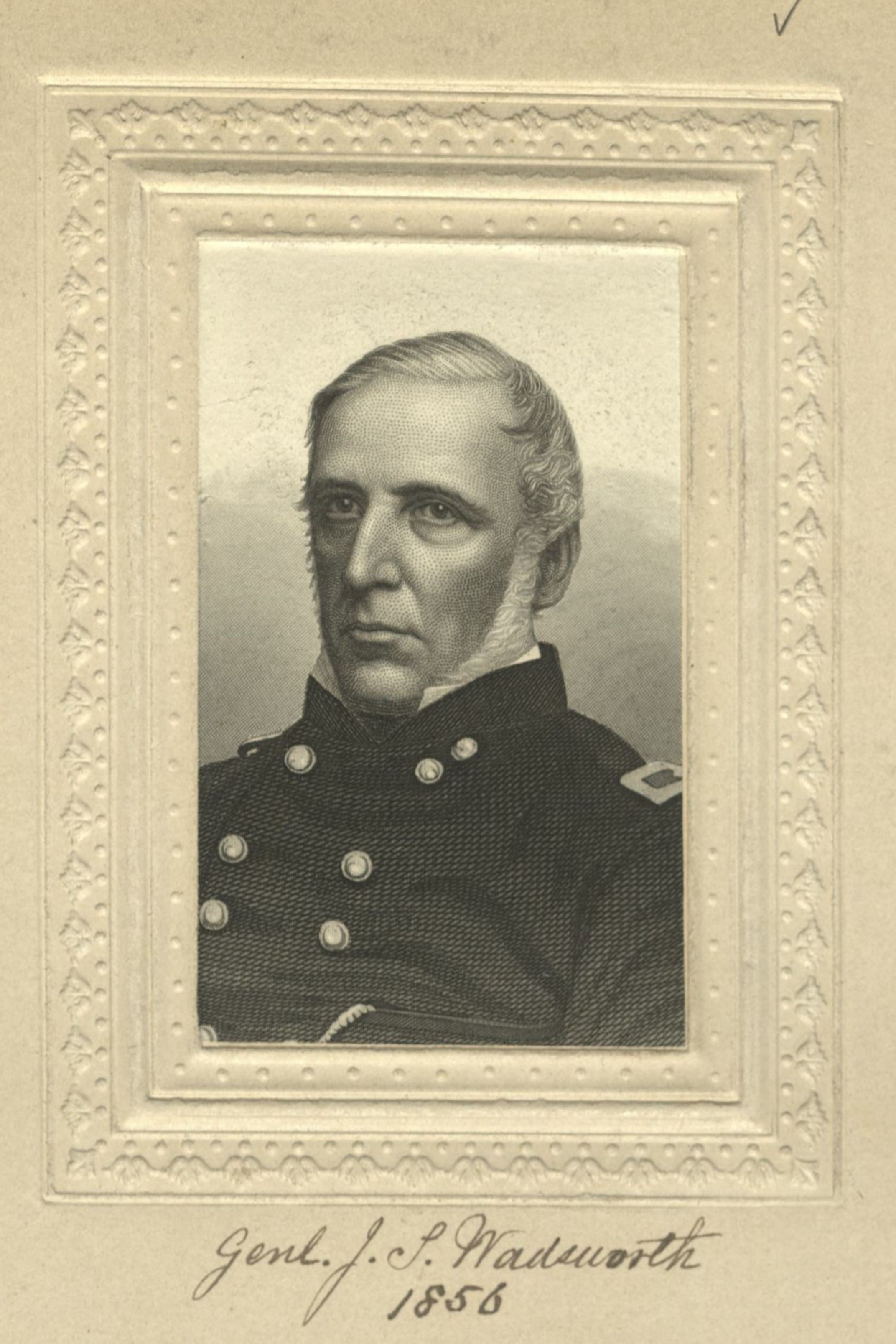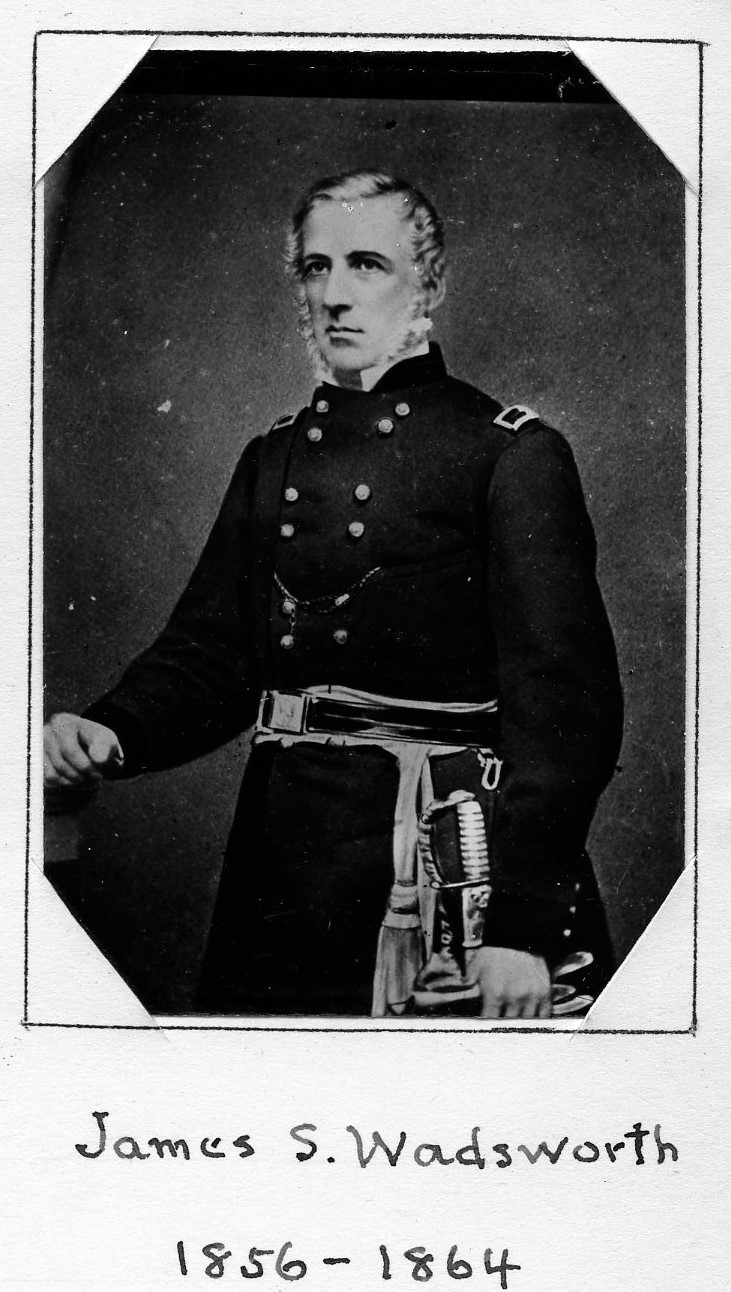Philanthropist/Union General
Centurion, 1856–1864
Born 30 October 1807 in Geneseo, New York
Died 8 June 1864 in Spotsylvania County, Pennsylvania
Buried Temple Hill Cemetery , Geneseo, New York
, Geneseo, New York
Proposed by Frederick S. Cozzens
Elected 1 March 1856 at age forty-eight
Century Memorials
Mr. William J. Hoppin read a Eulogy on the late General James S. Wadsworth, at the close of which the following Resolutions, prepared by the Committee appointed for that purpose were read by Mr. William M. Evarts, accepted and ordered to be entered on the minutes.
Resolved, That in the death of General Wadsworth society has lost one of its brightest ornaments, the State of New York one of its most eminent citizens, and the country one of its greatest patriots and bravest soldiers.
Resolved, That the most generous impulses of public spirit, and of ardent patriotism inspired the prompt and persistent resolution with which General Wadsworth forsook every attraction and enjoyment of private life with which his wealth and his family, his talents and his education surrounded him, and from the first outbreak of the Rebellion, devoted himself, his means, his influence, his labors, to the support of his Government, and at last laid down his life a sacrifice to the welfare, the safety, the honor of his country.
Resolved, That the manner of his death, in the front of battle, at the head of his command, in the severest conflict of the war, was an illustrious close of a noble life, and notwithstanding the great public loss and the manifold private griefs which attend his death, we must yet pronounce a life thus lived, a life thus closed, complete, heroic, fortunate.
Resolved, That we beg to offer a sincere and respectful sympathy, in their nearer sorrow and deeper affliction, to the family of General Wadsworth, and that we earnestly ask of the Government that it will honor his memory by permitting one of the forts of our harbor to bear and commemorate his heroic name.
Augustus R. Macdonough, Secretary
Monthly Meeting Minutes, 3 December 1864
Thayer, March, Rainsford, Benkard, Wadsworth, Porter, Young, and Noyes, no longer appear on our rolls. Of these, one wore out his life in faithful service to his country in a foreign land, two others, before the fulness of years was reached, had proved their worth, and gained their sure eminence as chiefs in their respective professions; and two, falling gloriously on the field of battle, passed into the memory of the nation as the brightest lights of sacrifice to patriotism that burn in the history of this war.
The Association has expressed in formal resolutions its appreciation of the high qualities of these men who honored us, and whom we delighted to honor, and those tracts which make them personally dear are each day regretfully recalled, as we miss how our gathering the clear sense and tolerant judgements of Thayer, the generous sympathies, ripened but not chilled, by large experience, of Young, and the brilliant yet gentle wit of the accomplished Porter. To remember that our circle once held such friends, and now has lost them, is to recal[l] our grief while justifying our pride in an Association which invites such companionship.
Augustus R. Macdonough
Annual Meeting Minutes, 14 January 1865


